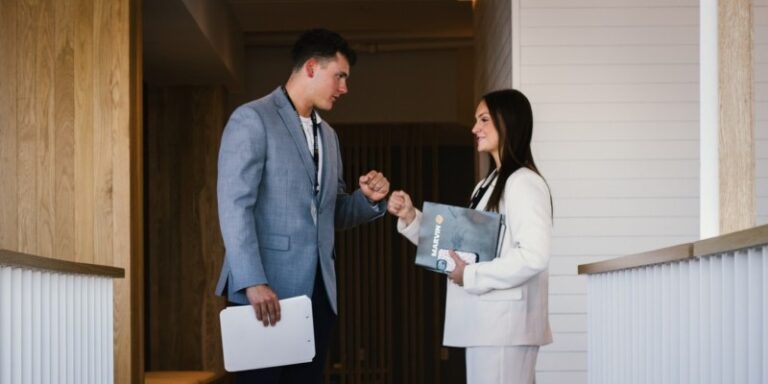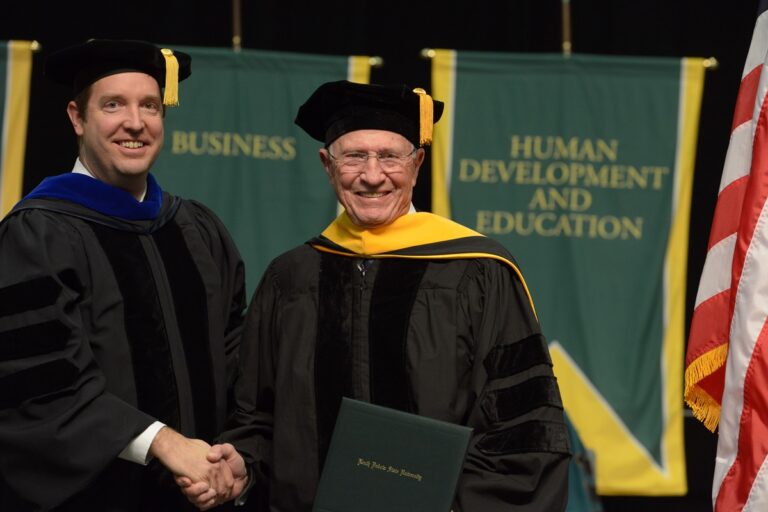At Marvin’s inaugural sales competition, NDSU students sharpen their skills in active listening, product knowledge, and persuasive communication.
Read More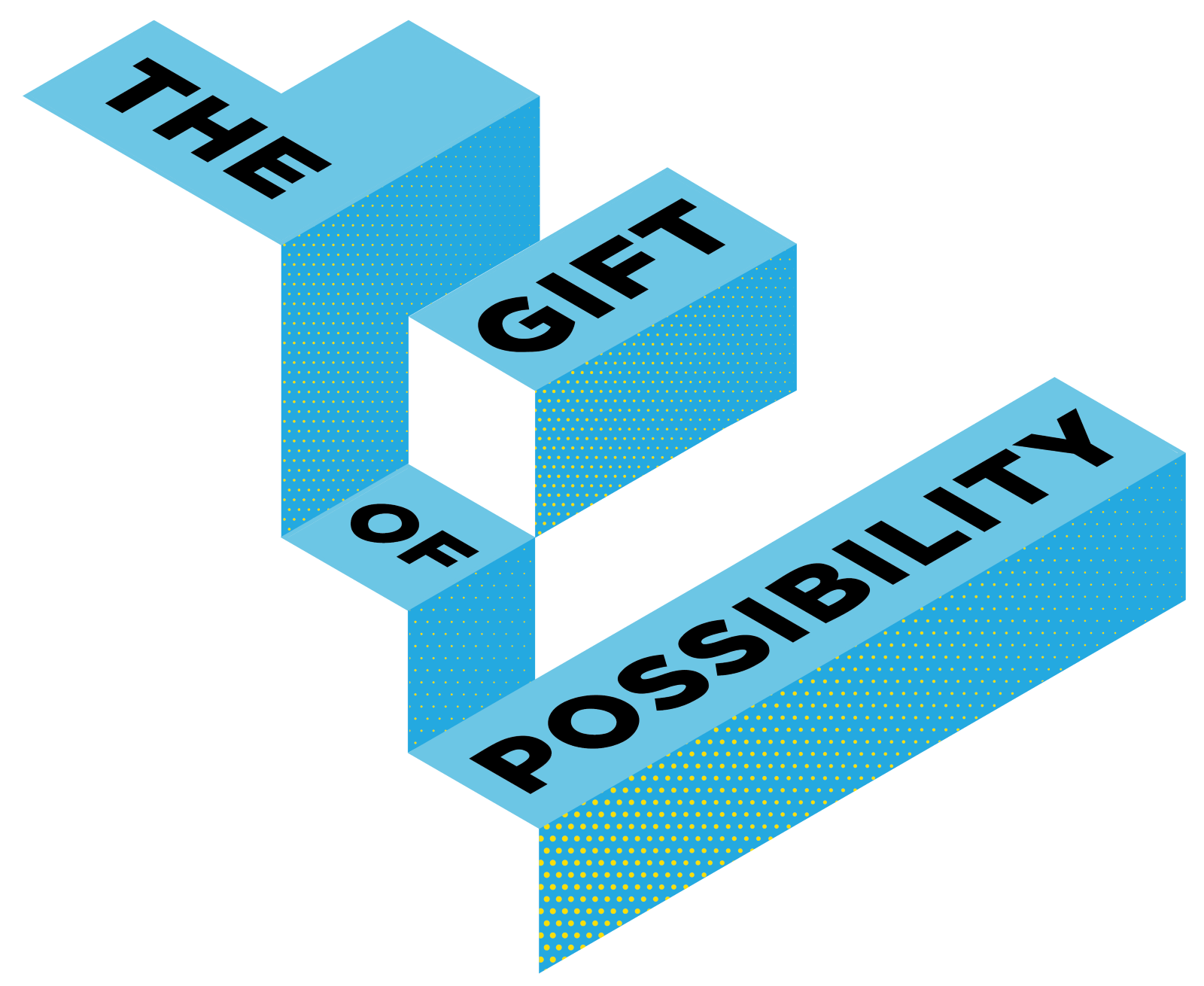
Story by Emily Erickson '15
Photos by Kensie Wallner
April 16, 2024
Entrepreneurial NDSU students are being embedded in the local business ecosystem and learning the fundamentals of entrepreneurship in the Possibility Fellowship Program — a brand-new scholarship opportunity and entrepreneurial program made possible by visionary faculty and philanthropic gifts.
A room full of entrepreneurs is a room full of big ideas. The air is charged. The personalities are bright. The job titles are long. The pitches are short.
The entrepreneurs in question? Ambitious NDSU students and local business owners, CEOs, educators, and forward-thinkers who have shaped the region with their own big ideas.
The conversations are future focused. The pitches are innovative. An app that tracks homeownership tasks. A bio-agricultural inoculant that will save local farmers thousands of dollars. A device that captures and reuses humidity from a household appliance. A service that “democratizes genetic engineering” by helping researchers evaluate the ability to manipulate microbes.
“Commercialize,” “demographic,” “field trials,” “for the price of a grad student.” A raised eyebrow. A squint. An approving nod.
An enterprising fly on the wall would have heard and seen all this and more in December 2023 at a pitch meeting for the Possibility Fellowship Program, where 12 students in four teams pitched their business ideas to mentors for an evening of inspiration, curiosity, and constructive feedback.
But an event or program like this is akin to any big idea: some assembly is required. It takes time, passion, and a solid foundation.
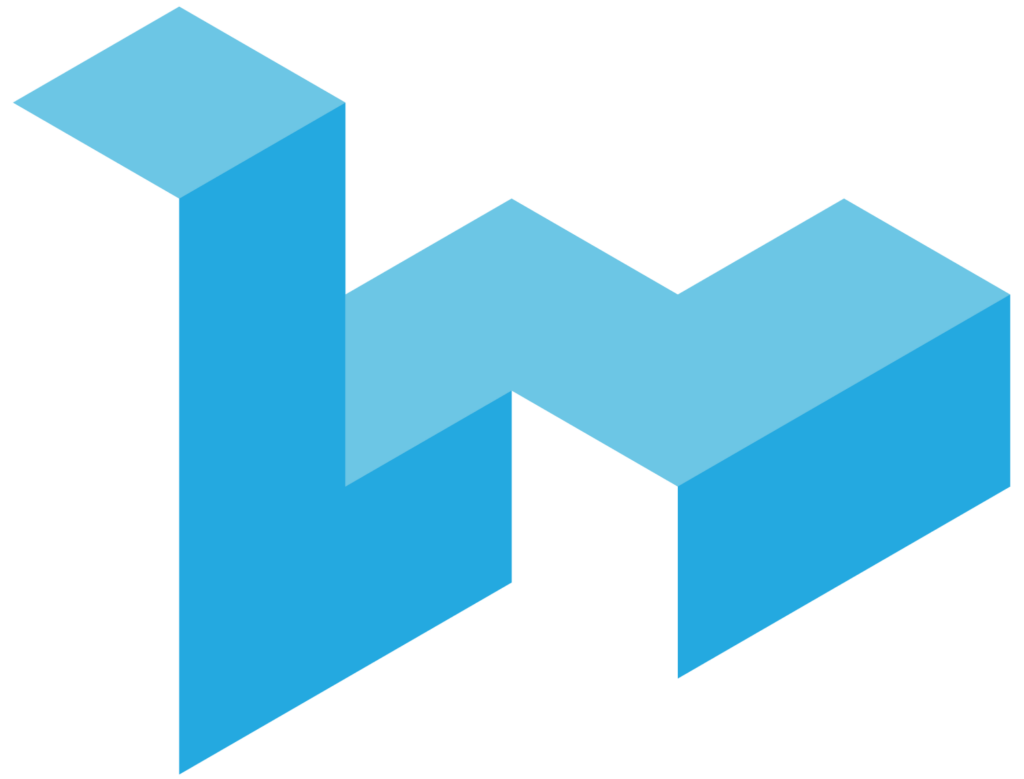
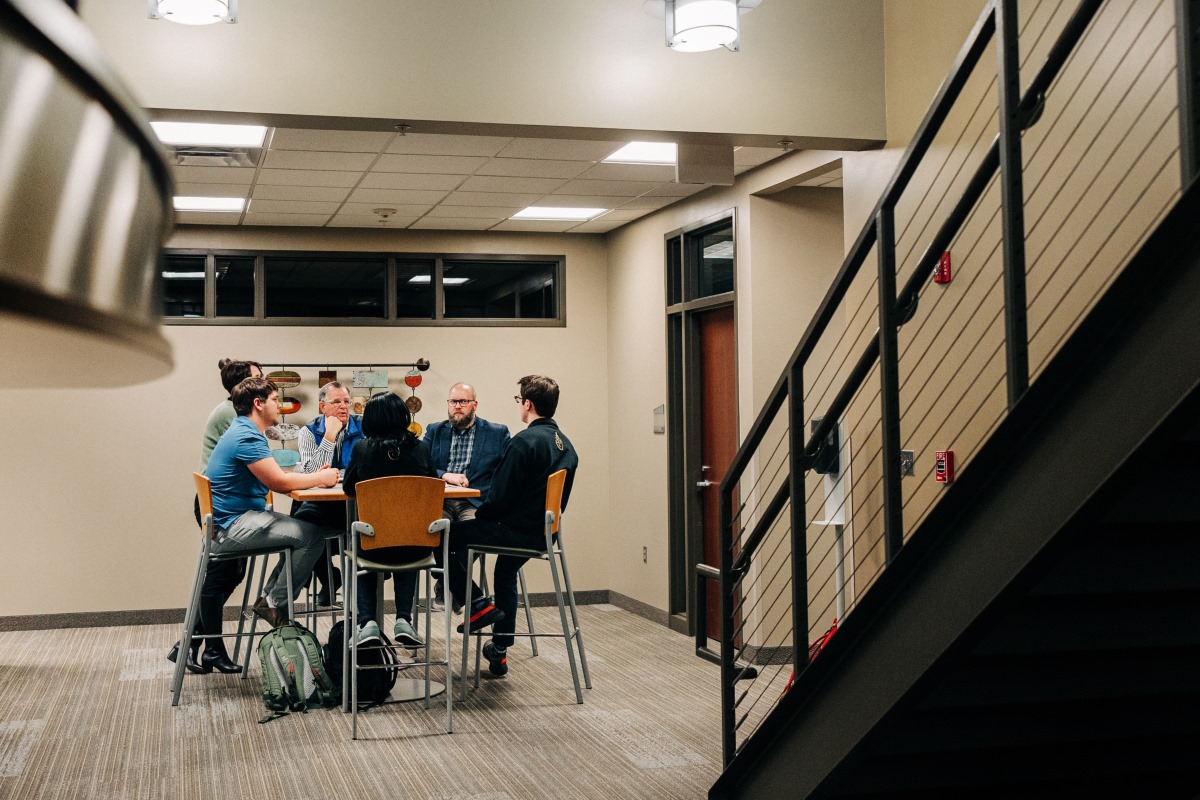
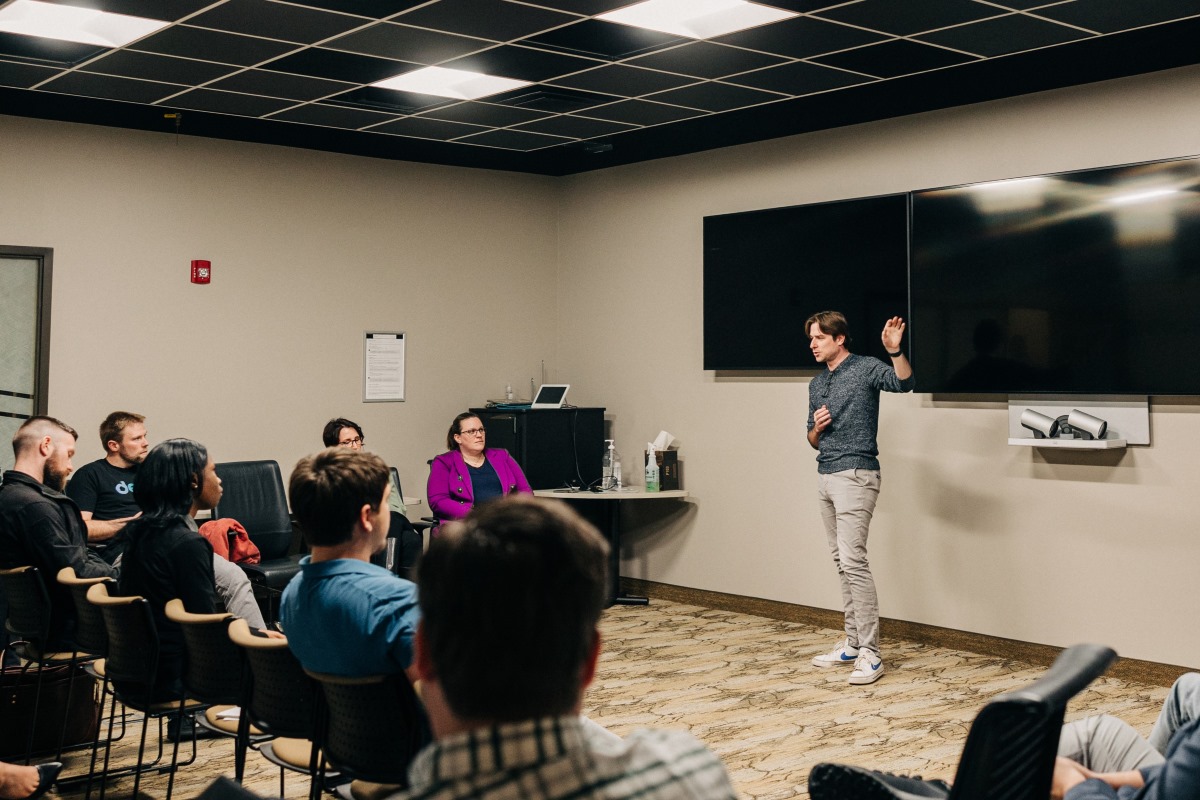
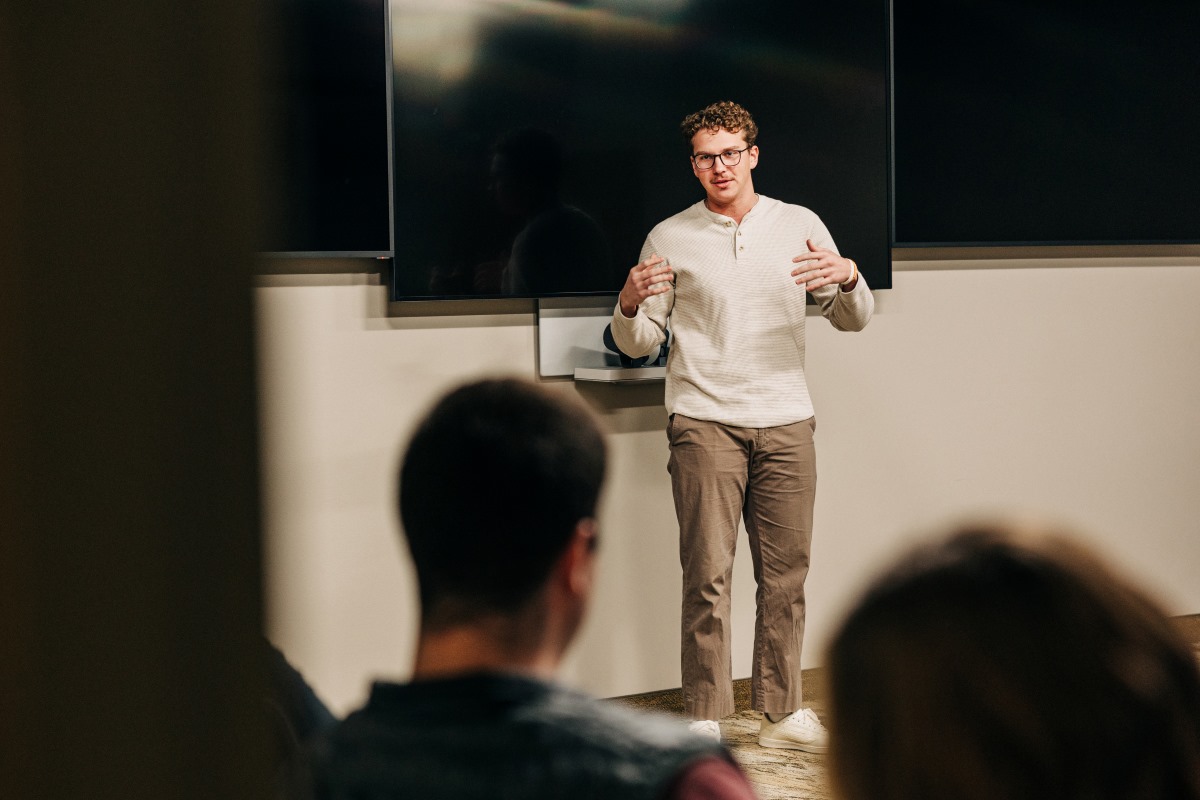
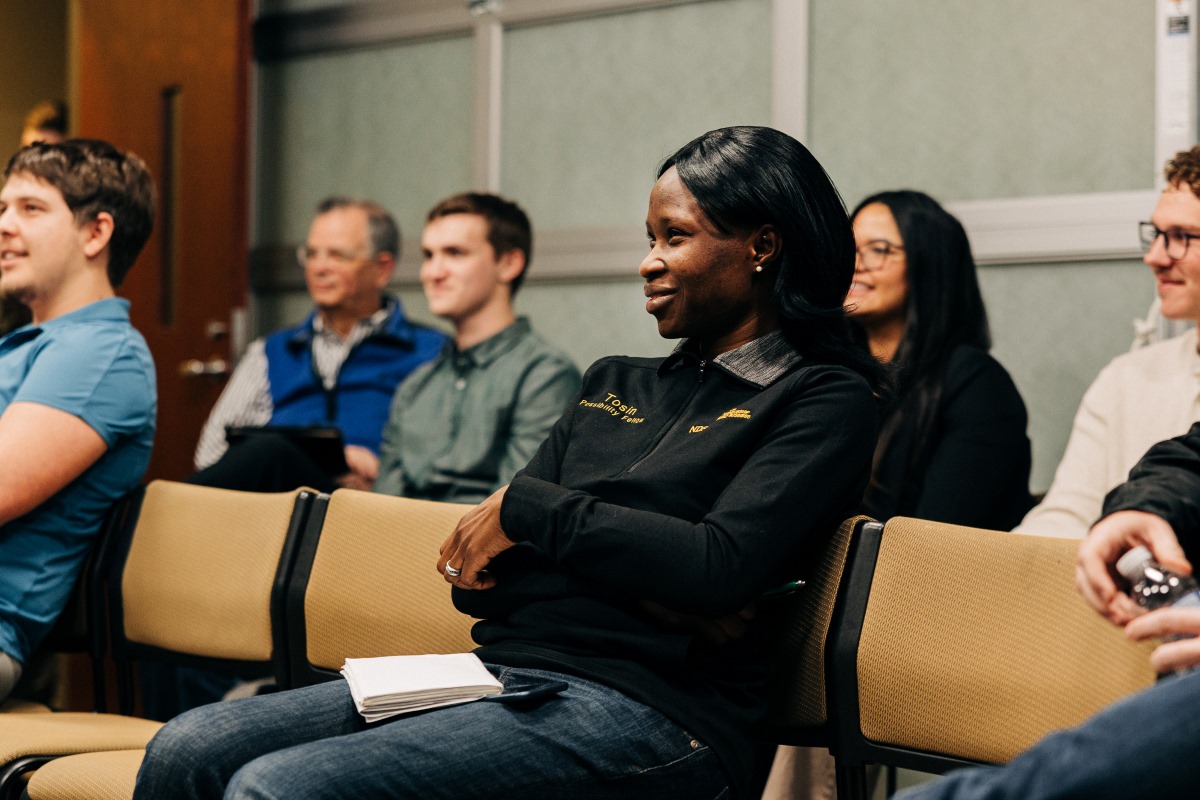
NDSU Possibility Fellowship Program participants and local business leaders at December 2023 pitch meeting
NDSU associate professor of management and director of the Center for Entrepreneurship Onnolee Nordstrom is interested in what drives entrepreneurial success and, with it, societal growth.
When she arrived at NDSU in 2016, there were no entrepreneurship classes — students could only take them through the University of North Dakota. Later that year, a donor who wished to remain classified established a $4.5 million endowment to spur entrepreneurial activity at NDSU, with $1.5 million of the funds coming from the North Dakota Challenge Grant program. These private funds established the President Jim Ozbun Endowed Chair of Entrepreneurship in honor of Jim Ozbun, who served as NDSU’s president from 1988 to 1995, and Onnolee was named the inaugural recipient.
After being named the endowed chair, Onnolee utilized her resources to create courses on entrepreneurship and managing family businesses. Over the following years, NDSU’s entrepreneurship classes became increasingly popular. Onnolee and other faculty found that there were students whose tenacity and innovation stood out, who wanted more opportunities. She thought, what if we created a group to give them those opportunities? What if we embed those students in the community, give them the tools and resources they need, and push them to new heights?
Enter: the Possibility Fellowship Program, an opportunity for select students to meet monthly for lectures and discussions; read and discuss entrepreneurial books; meet business leaders and get involved in the community; brainstorm, research, and develop a project for the year and set their findings in motion; and hone skills like prioritization, time management, leadership, interviewing, and relationship-building.
Philanthropic funding helped get the Possibility Fellowship Program off the ground. The Ozbun endowment, with support from other benefactors, provided a $5,000 scholarship for each fellow.
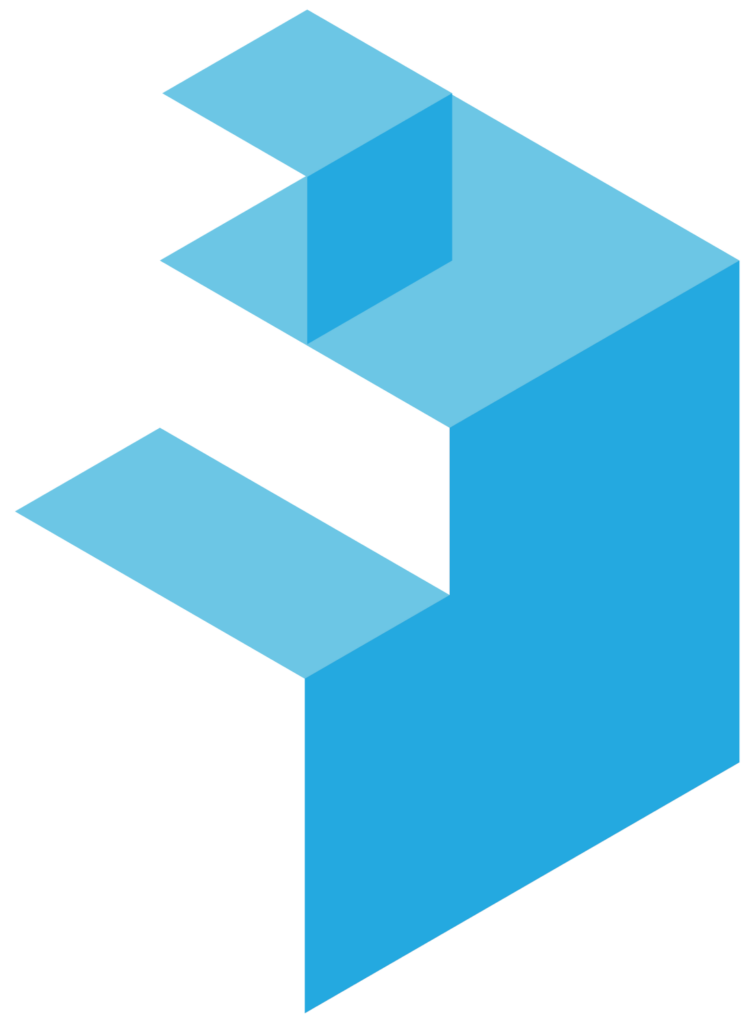
IN September 2023, the first cohort of Possibility Fellows met in NDSU’s Barry Hall. The intentionally diverse group spans from undergraduate to Ph.D. students at NDSU, across disciplines like microbiology, electrical engineering, and economics.
“I’m a huge believer that diversity on teams creates better outcomes,” Onnolee said. “And so, when you have students from different departments, I think it gives us more opportunity to create great teams and create great ideas, too.”
Onnolee and co-advisors Jessica Vold and Dongwook (Jimmy) Kim work to engender in the cohort a holistic understanding of entrepreneurship. Onnolee says that her definition of entrepreneurship is more inclusive than the formation of new businesses that create economic wealth. Many types of entrepreneurs drive outcomes that are socially motivated, says Onnolee.
“I think entrepreneurship is about … creating newness. So [in lectures] I would talk a lot about … newness and value creation, but that newness and that value creation can be social, it can be institutional, it can be economic,” Onnolee said. “So maybe it’s not about profit in the traditional sense of ‘we’ve made so much money,’ but maybe ‘we’ve … made a change. It helped to change an institution. To address a problem in the community.’”
Doctor of Pharmacy and Possibility Fellow Elizabell Delgado ’26 has a keen understanding of how this program can improve not only her career but also non-economic outcomes for society and the health care system as a whole.
She sees the ins and outs of the health care industry — the burnout, the quickly evolving medical technologies, the health care crises. To her, having an entrepreneurial mindset is all about making improvements to support patient-centered treatment and provide health care access.
“When I think about entrepreneurship, I think about taking risks in hope of profit,” Elizabell said. “Many people think of profit in terms of monetary value. As a health care professional, I think of profit as a benefit or an improvement.”
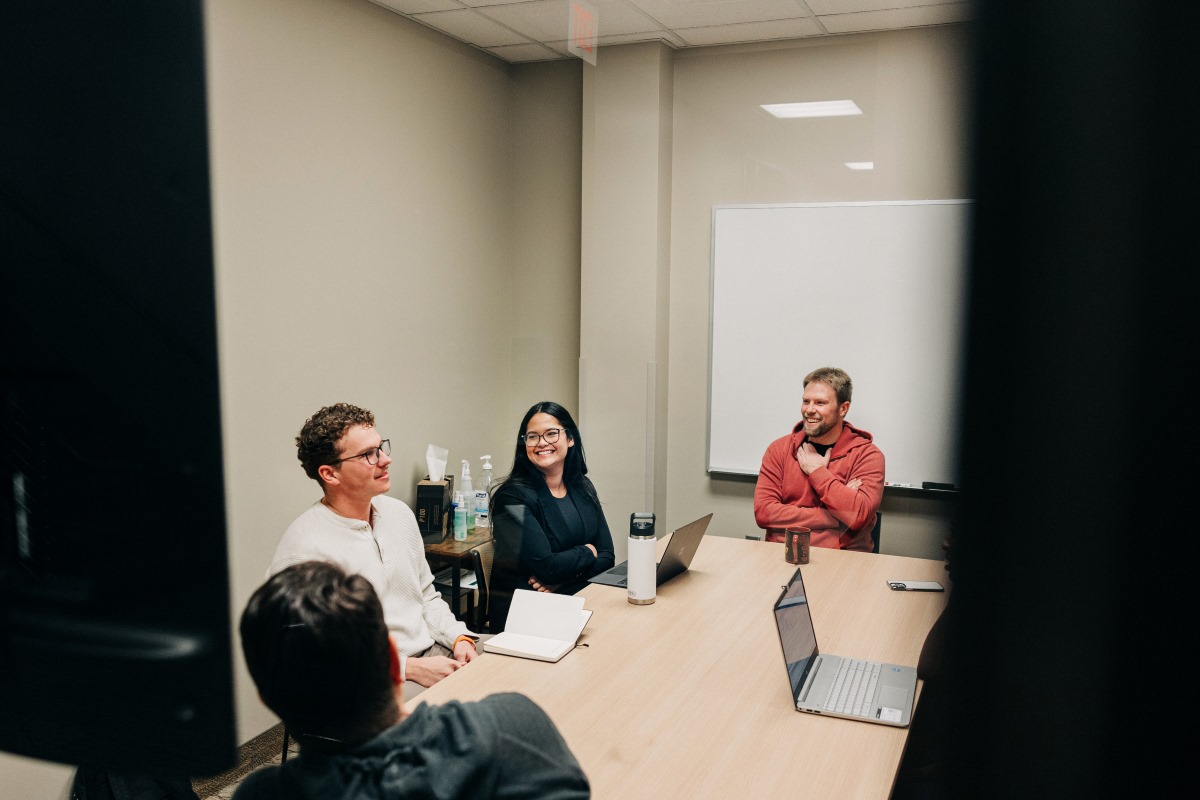

AN essential element of the program is connecting students with the entrepreneurial ecosystem within an educational space. The fellows have real-world opportunities to learn and build relationships with business leaders and peers across various industries.
Onnolee describes an entrepreneurial ecosystem as an understanding of a community, considering the stakeholders, government policies, private businesses, and other elements that are needed to have an environment that drives entrepreneurship.
“We’re … trying to test students’ assumptions,” Onnolee said. “They assume that they have a market, they assume that customers are going to buy this. And so then I said to them, ‘OK, now go talk to some people and find out, are your … assumptions or hypotheses correct?’”
MBA student Cam Landis ’24 is the Jim and Cheri Buus Venture Capitalist Fellow. Coming to NDSU for his MBA after an undergraduate degree at the University of Pennsylvania, Cam had academic experience with business and entrepreneurship concepts and wanted to test his theories.
“I’ve met people, whether it’s local business leaders or students, that I would have never met,” Cam said of his opportunities in the program. “I don’t know that … if you were going to try to get on the phone with somebody who is in a position of authority in a business in Philadelphia, that they would really take you seriously. [B]ut here we have not been turned down for a single meeting.”
The naturally entrepreneurial spirit of Fargo makes it an ideal setting for these connections between students and business leaders.
“We have amazing family businesses in this area,” Onnolee said, referencing local companies like Scheels and Bell Bank. Across the country, family businesses are the dominant form of business, she says. According to the U.S. Chamber of Commerce, there are 5.5 million family businesses in the U.S., which account for 57% of America’s gross domestic product and 63% of the workforce.
To Onnolee, the benefits of connecting students with Fargo’s entrepreneurial ecosystem are clear.
“I think it helps the community see what our students are doing, and it gets the students … involved in and embedded in the community,” she said.
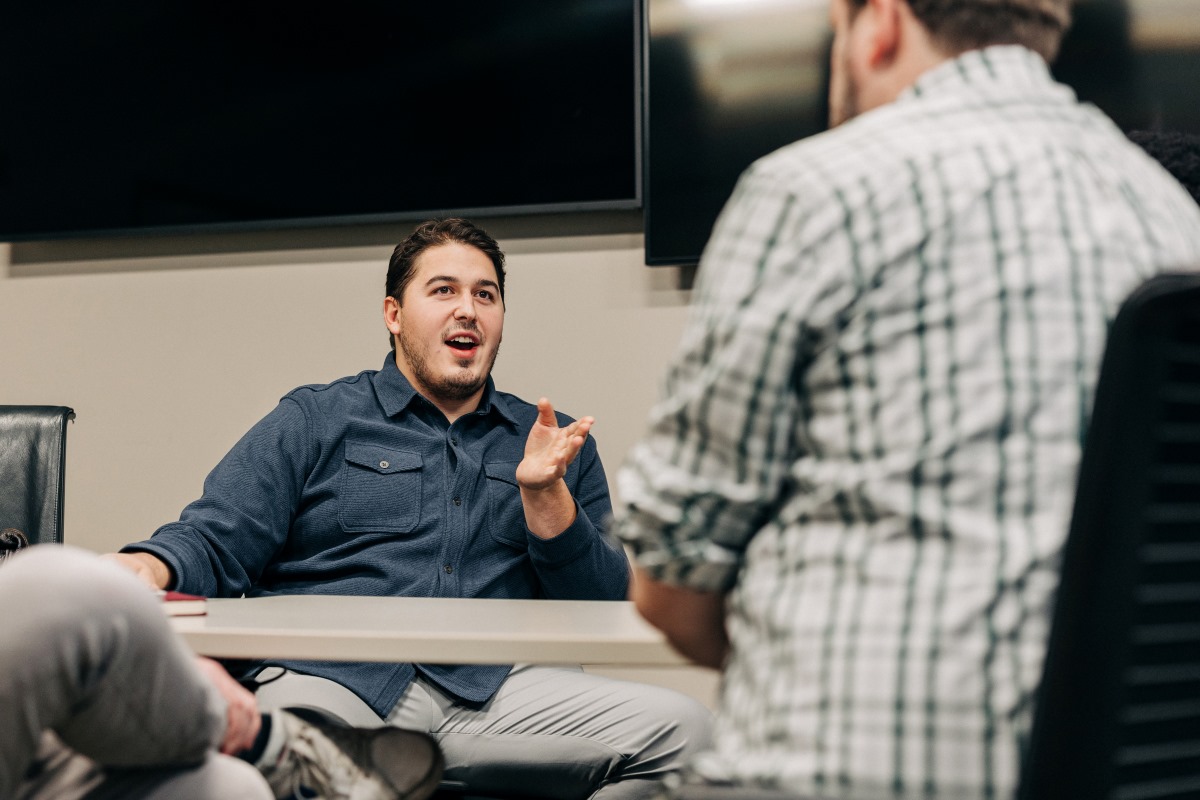

This spring, the groups will continue their market research, testing, and interviews, and in April 2024, a showcase will be held at Barry Hall, where the groups will present their pitches to campus leadership, local entrepreneurs and business leaders, family, and venture capitalists.
After their fellowships, Onnolee says she hopes the students will stay in the area and become the next generation of entrepreneurs and business leaders. But most importantly, the goal is that they develop and use the skills and relationships fostered in the program.
“I think that the Fellowship has provided me with … the tools and the resources to enhance my leadership abilities. It has given me a lot of different … relationships that I know will be lasting. It’s given me a lot of different opportunities and so I’m super grateful for that,” Elizabell said.
In the future, growth for the Possibility Fellowship Program may look like involvement in national pitch competitions, a dedicated facility for ideating and creating, or the next entrepreneurial success story for the Bison community.
“A lot of times it’s not necessarily the idea … or the business, it’s the … founders [of a company or organization] that really propel it,” Cam said. “So if the founders … are … tenacious people who are honest in business and … know how to ask questions and know how to network … that’s really what’s going to carry people forward.”
This is just the beginning of possibility. It’s time to build.
Share This Story
Related Stories
A Passion for Giving Back Fueled by Farm Values
Spencer Duin '66, '18 is a recipient of the 2023 Distinguished Service Award, which recognizes an individual who has provided outstanding volunteer...
Read More